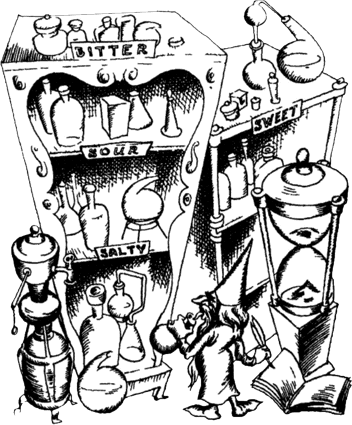107Stories About ChemistryINDEX |
77.
To Make Good Gunpowder
Who invented gunpowder? Legend says that it was the German monk Berthold Schwarz. Gunpowder is not difficult to make: all you have to do is mix sulphur, saltpetre and finely powdered charcoal in definite proportions. But the components must be of high quality. How can their quality be judged? In the old days gunpowder makers tested saltpetre by tasting it.  Here is a curious procedure for analysing saltpetre by taste, found in the archives: �Saltpetre that is salty and bitter is no good; only if it bites the tongue and some sweetness can be felt, is the saltpetre good.� One could say of a good gunpowder maker that he had �eaten a peck of salt,� couldn�t one? The method of testing sulphur was still more singular. A piece of sulphur taken in the fist was brought close to the ear. If a slight cackling sound could be heard, the sulphur was considered suitable. Otherwise it was discarded as impure. Why does pure sulphur cackle? Its thermal conductivity is very low. The fist warms the sulphur and different parts of it acquire different temperatures. Stresses arise in the sulphur, and being brittle, it breaks up into small pieces, making slight cackling sounds as it does so. The thermal conductivity of impure sulphur is much higher and it is therefore much stronger. Such is the scientific grounding, so to say, of chemical analysis by ear. To make a long story short, the principal analytical instruments of the chemists of the past were their sense organs. This fact is even reflected in the names of some simple and complex substances. For example, beryllium formerly used to be glucinum, because its salts have a sweetish taste. The name glycerine also comes from the Latin for �sweet�. And natural sodium sulphate is called mirabilite, which means �bitter.� |





